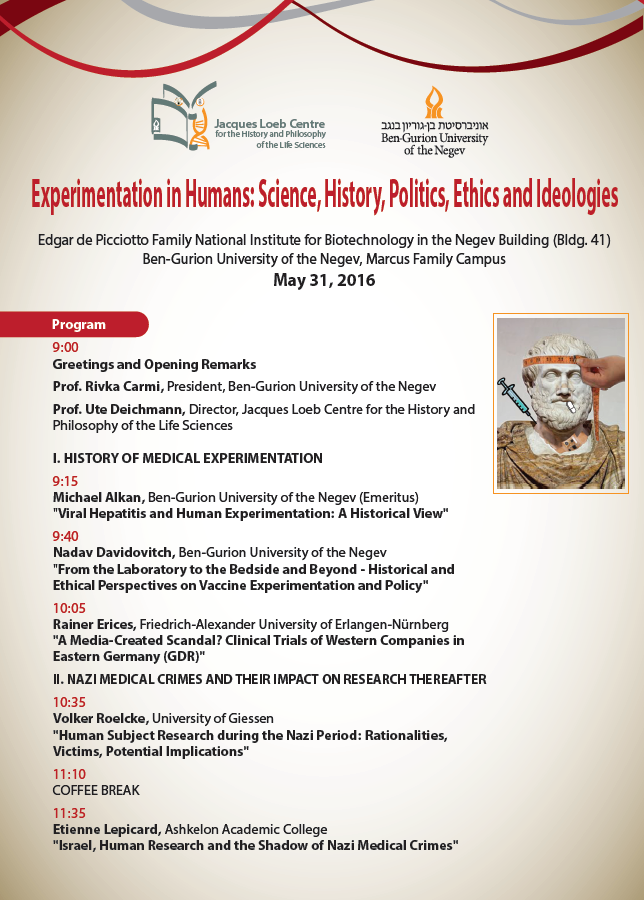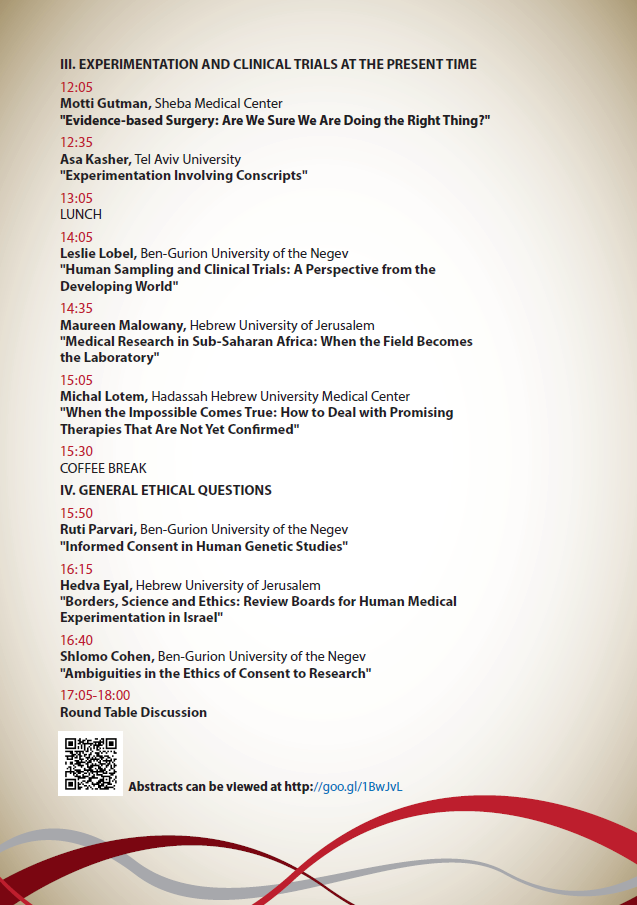

Medical human subject research strongly increased in the late 19th century, decades after Edward Jenner’s work on the smallpox vaccination, which took place around 1800.
After the Second World War medical experimentation in humans became the symbol of scientific abuse per se, and various codes and legislation covering this topic – the Nuremberg Code and the Declaration of Helsinki among others – were constructed in the aftermath of this dark time.
During the last 30 years, the public image of human subject experimentation has changed significantly in Western countries. A shift has occurred from defending patients’ rights within studies towards the idea of having a right to take part in a clinical trial. Yet at the same time, in African countries the rising number of biomedical studies performed without consent and the abuses committed by big pharmaceutical companies are a source of rising mistrust.
This workshop will acknowledge the tension between these two contrasting images of biomedical human subject research, while at the same time examining how the aims and limits of this medical experimentation are defined and acknowledging its ethical concerns.
This workshop will be a truly interdisciplinary event at BGU, with the active participation of faculty and students from many departments and fields of research such as medicine, biology, history of medicine, ethics, and philosophy. Scholars from other Israeli universities and institutions will participate as well, along with those from abroad.
Online registration |  Program - PDF Version
Program - PDF Version